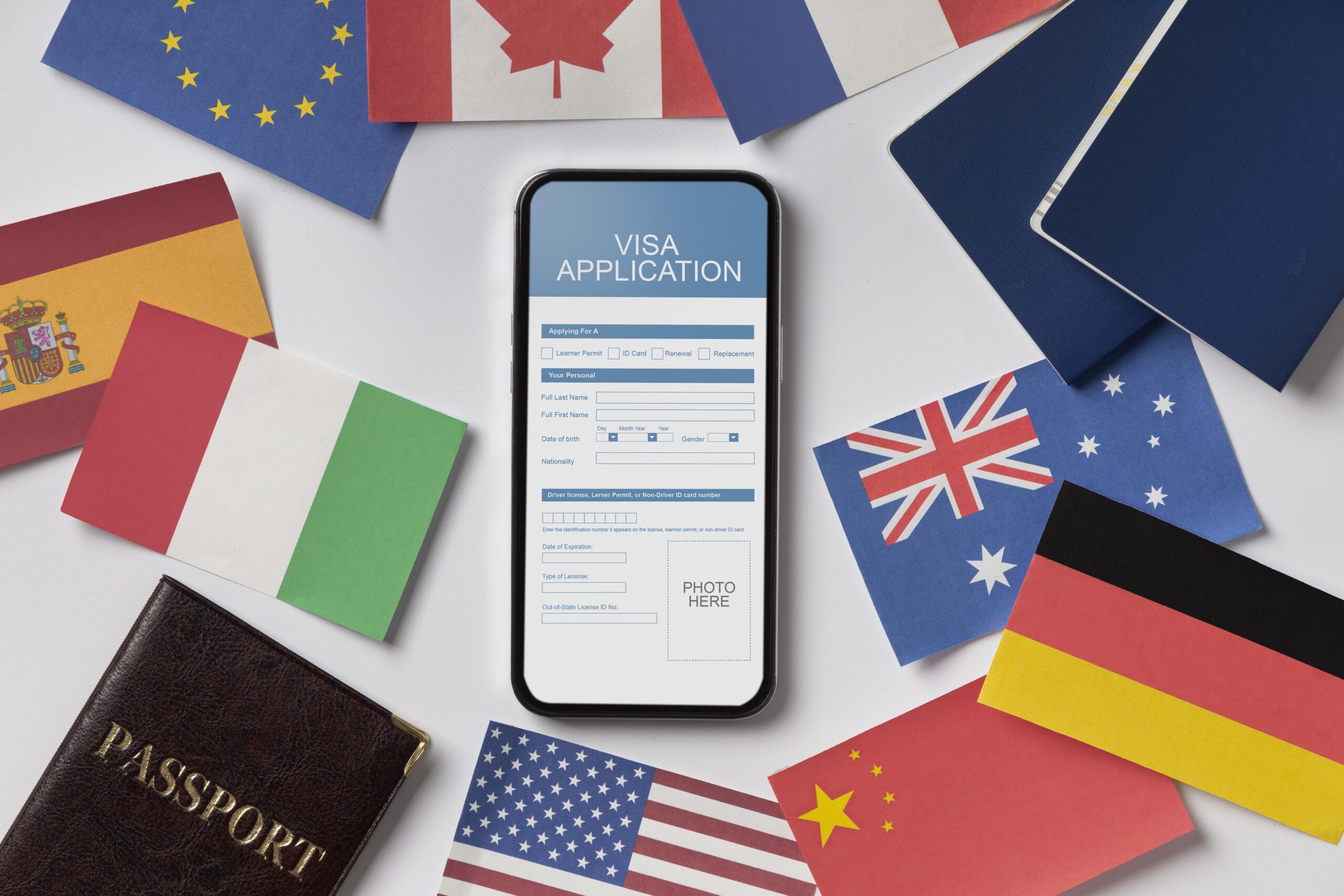- +442045384640
- +44 7351 404470
- [email protected]

Unlock Your UK University Dreams: 10 Prestigious Institutions Welcoming Students Without IELTS Are you an aspiring international student with dreams of studying in the United Kingdom, but feeling held back by the IELTS requirement? We have brilliant news for you! Many UK universities without IELTS requirements are opening their doors to talented students from around the globe. In this comprehensive guide, we’ll explore ten prestigious institutions that offer alternative pathways for demonstrating your English proficiency, making your academic aspirations in the UK more achievable than ever. Before we dive into our list of universities without IELTS in the UK, let’s briefly discuss what English proficiency means in the context of higher education and why it’s so crucial for international students. What is English proficiency? English proficiency refers to an individual’s ability to understand, speak, read, and write in English effectively. In academic settings, particularly in English-speaking countries like the UK, demonstrating a high level of English proficiency is essential for international students to succeed in their studies and integrate into university life. Proficiency Test Meaning A proficiency test is an assessment designed to measure a person’s skill level in a specific area, such as language ability. In the context of English language skills, proficiency tests evaluate how well non-native speakers can use English in academic or professional environments. Traditionally, the International English Language Testing System (IELTS) has been one of the most widely accepted proficiency test options for UK university admissions. However, recognising the diverse backgrounds and circumstances of international students, many institutions now offer alternatives to IELTS. Top UK Universities Without IELTS Now, let’s explore ten outstanding universities of UK without IELTS options that are paving the way for international students to pursue their academic dreams in the United Kingdom. University of Bristol The University of Bristol, renowned for its research-intensive programmes and vibrant student community, offers several alternatives to IELTS for international applicants. These include: For students who have completed their education in English-medium institutions, the university may also consider your previous qualifications as evidence of English proficiency. University of Greenwich The University of Greenwich is a well-established institution located in London, known for its diverse and inclusive environment. It offers a wide range of undergraduate and postgraduate programs, particularly strong in fields like business, engineering, education, and health sciences. The university boasts a beautiful campus by the River Thames and is recognized for its commitment to student support and employability. It is among the universities without IELTS in UK and provides alternatives that are as follows: The University of Greenwich also offers internal English proficiency tests or pre-sessional English courses for students who do not meet the required standard of English. Additionally, applicants from English-speaking countries or those who have previously studied in English may be exempt from the IELTS requirement. University of Sheffield The University of Sheffield, a member of the Russell Group, university of UK without IELTS , provides multiple pathways for international students to demonstrate their English proficiency. Alternative for IELTS include: Sheffield also considers English language qualifications from specific countries and regions, making it an excellent choice for those seeking to study in UK without IELTS. University of Oxford Oxford, without IELTS university in UK, is another renowned institution, recognized globally for its high academic standards, research excellence, and historic significance. It provides a diverse range of undergraduate and postgraduate programs. It accepts: University of Manchester Known for its innovative research and strong emphasis on employability, the University of Manchester is one of the UK’s largest universities, offering a broad spectrum of academic programs. University of Warwick A leading research university in the UK, Warwick is well-regarded for its focus on business, engineering, and social sciences, with strong international partnerships and a diverse student body. University of Birmingham A prestigious, research-intensive institution, Birmingham offers a range of undergraduate and postgraduate degrees. It is known for its strong academic reputation, especially in fields like engineering, business, and medicine. University of Glasgow Founded in 1451, Glasgow is one of the oldest universities in the English-speaking world. It is renowned for its research and wide range of academic programs, particularly in health, engineering, and humanities. University of East Anglia (UEA) UEA is renowned for its research-led teaching and strong focus on interdisciplinary studies. It’s particularly well-regarded for environmental sciences, creative writing, and social sciences. University of Hertfordshire Hertfordshire is known for its career-focused programs and strong links to industry. The university offers a range of undergraduate and postgraduate courses, particularly in technology, business, and health. UK study visa without IELTS Now that we’ve explored these fantastic options for a UK study visa without IELTS, let’s discuss some key points to keep in mind when considering alternatives to IELTS. For international students dreaming of studying in the UK, obtaining a student visa without IELTS is now more achievable than ever. The universities we’ve discussed are just a selection of the many institutions embracing alternative ways to assess English proficiency. This shift not only makes UK higher education more accessible but also recognises the diverse language backgrounds and experiences of international students. Wrap Up… As you embark on your journey to study in the UK, remember that language proficiency is just one aspect of your application. Universities are looking for well-rounded individuals who can contribute to their academic community. Focus on showcasing your academic achievements, extracurricular activities, and passion for your chosen field of study alongside your English language skills. At Gobblex Educational Consultants, we’re committed to guiding you through every step of your UK university application process. Whether you’re exploring IELTS alternative options, need advice on choosing the right university, or require assistance with your personal statement, our team of experienced consultants is here to support you. Your dream of studying at a prestigious UK university is within reach, even without IELTS. With careful planning, thorough preparation, and the right guidance, you can unlock a world of academic opportunities in the United Kingdom. Remember, each of these universities offers a unique learning experience and environment. Take
Read More
Exploring the Gateway to European Education: Countries with Easy Visa Requirements Embarking on an educational journey in Europe is a remarkable venture filled with rich cultural experiences and academic excellence. Yet, navigating the path to study abroad often involves overcoming one significant hurdle—securing a student visa. Fortunately, several European countries are making this process smoother for international students, presenting themselves as the countries with easy visa requirements in Europe. Spotlight on Easy Visa Getting Countries Now, let’s turn our attention to specific European nations that are leading the charge in visa accessibility. These countries have distinguished themselves through a combination of straightforward application processes, welcoming policies, and attractive study environments. Iceland: 2.2% rejection rate Iceland may not be the first country that comes to mind for international study, but its simplified visa process and high-quality education system are gaining attention. The country offers a unique blend of stunning natural beauty and cutting-edge research opportunities, particularly in fields like renewable energy and environmental sciences and most of it, it is the easiest country to get a visa. Key Trends: Switzerland: 10.7% of visas rejected Renowned for its academic excellence and precision, Switzerland extends this efficiency to its visa procedures. While not part of the EU, Switzerland’s agreements with neighbouring countries often facilitate easier visa access for students. Key Trends: Latvia: The Baltic’s Rising Star (11.7%) Latvia has been quietly establishing itself as an attractive destination for international students. With its affordable living costs and growing reputation for quality education, particularly in fields like IT and business, Latvia is simplifying its visa processes to welcome more global talent. Key Trends: Italy: Embracing International Talent (12%) Italy’s rich cultural heritage and world-class universities have long been a draw for international students. Recent years have seen a concerted effort to simplify visa procedures, especially for students pursuing degrees in STEM fields. Key Trends: Luxembourg: Small Country, Big Opportunities (12.7%) Luxembourg may be small in size, but it’s making big strides in attracting international students. Its multilingual environment and strong connections to EU institutions make it an appealing choice for those interested in European affairs and international business. Key Trends: Lithuania: Baltic Innovation Hub (under 13% ) Lithuania is rapidly gaining recognition as a hub for innovation and technology. The country has been proactive in simplifying visa processes for international students, particularly those interested in tech-related fields. Key Trends: Slovakia: Central European Gem (under 13% ) Slovakia’s central location and improving educational infrastructure are making it an increasingly attractive option for international students. The country has been working on simplifying its visa procedures to attract more global talent. Key Trends: Germany: Education Powerhouse with Open Doors Germany remains a top destination for international students, thanks to its world-class universities and robust economy. The country has made significant efforts to streamline its visa processes, particularly for students in high-demand fields. Key Trends: Austria: Alpine Education Excellence Austria combines high-quality education with a rich cultural experience. The country has been working to simplify its visa procedures, particularly for students pursuing postgraduate degrees. Key Trends: Greece: Mediterranean Learning Experience Greece is leveraging its rich history and improving educational infrastructure to attract more international students. Recent efforts to simplify visa procedures are making it easier for students to experience the cradle of Western civilization. Key Trends: Poland: Central European Education Hub Poland’s rising profile in European higher education is matched by its efforts to simplify visa procedures for international students. The country offers a blend of historical richness and modern educational facilities. Key Trends: Hungary: Danube Valley of Knowledge Hungary, with its central location and rich academic tradition, is making strides in attracting international students. The country has been working on simplifying its visa procedures, particularly for students in priority fields. Key Trends: Navigating the Visa Landscape: Tips for Prospective Students For students contemplating study in these easy visa getting countries, here are some practical tips to navigate the visa application process: The Future of European Student Visas As we look to the future, several trends are likely to shape the landscape of student visas in Europe: Conclusion: A World of Opportunities The trend towards more accessible visa processes in Europe is opening doors for ambitious students worldwide. From the fjords of Iceland to the Mediterranean shores of Greece, the continent offers a diverse array of educational experiences, each now more accessible than ever before. As you consider your options for international study, remember that the countries with easy visa requirements in Europe offer more than just simplified paperwork. They represent gateways to world-class education, cultural immersion, and life-changing experiences. Whether you’re drawn to the technological innovation of Germany, the artistic heritage of Italy, or the emerging opportunities in the Baltics, Europe’s educational landscape is rich with possibilities. The key to unlocking these opportunities lies in thorough research, careful planning, and a willingness to embrace new experiences. As visa processes continue to evolve, staying informed about the latest trends and requirements will be crucial for prospective international students. In this era of global education, the question is no longer just “which European countries give visas easily,” but rather, “which European country aligns best with your academic and personal goals?” By considering both visa accessibility and educational quality, you can make an informed decision that sets the stage for a transformative international study experience. As you embark on this exciting journey, remember that each visa application is a step towards broadening your horizons, challenging your perspectives, and preparing for a globalised future. The Europe of tomorrow is being shaped by the international students of today – and with the right preparation and mindset, you could be part of this exciting transformation. FAQ: Easy Visa Options for Europe 1. Which European country gives visas easily? Some European countries are known for having easier and faster visa processes, especially for tourists. Lithuania, Estonia, and Latvia often approve Schengen visas quickly and with less hassle. If your documents are complete, you’ve got a great chance! ✅ Tip: Apply early, be honest, and
Read More
How to Find Jobs for Americans in Europe The European dream is already a reality for almost 800,000 Americans, and job opportunities in Europe keep growing. The continent needs workers badly in many sectors, which creates amazing chances for U.S. citizens who want to work abroad. So no one has to worry about a query ‘ How to find jobs for Americans in Europe.’ The numbers tell the story clearly. Germany will need 25,000 teachers by 2025, and healthcare jobs will have over 11 million openings. Denmark has 70,000 positions open for skilled workers right now. Portugal’s American resident population grew by 45% in 2021. We’ll get you on the way to securing the ultimate job you dream about in Europe. You’ll be knowing the best countries to work in and which industries seek American talent. We’ll take you through visa requirements and guide you in application processes. This will make it possible for your European career dreams to materialize. Current Job Market for Americans in Europe It was great news for American professionals looking for opportunities in growing markets across importing countries in Europe. For example, the number of American residents in Portugal grew by 45% in 2021. The country welcomes workers with seasonal visas and jobs in the service sector. Ireland also attracts talent through its Critical Skills Employment Permit and General Employment Permit programs. So, there are many jobs in Europe for Americans. Top European countries hiring Americans There are a lot of European companies that hire americans. Danish companies list 70,000 jobs for skilled professionals. These roles are concentrated in Copenhagen’s bustling sectors. German authorities created the Chancenkarte (opportunity card) that lets workers under 35 search for jobs within the country. Finnish officials streamlined their process with a “Quick Lane” system that processes work permits for specialists in just 14 days. In-demand industries and roles Europe needs talent across multiple sectors. ICT specialists are highly sought after, making up 9% of all online job postings. Software developers and analysts follow at 5.3%, while engineering professionals represent 4.3%. The job market looks promising in: These are the best jobs for Americans in Europe. Average salaries and benefits European salaries vary by country. Luxembourg tops the list with average annual wages of $85,500, while Greece sits at $29,000. European workers earn 20-40% less than their American counterparts. A software engineer in Europe makes $75,000 on average, compared to $115,000 in the US. European benefits beat US standards hands down. Workers get at least 20 days of vacation by law. The package includes universal healthcare, robust social security systems, and generous parental leave. Danish workers enjoy some of the best perks, with comprehensive maternity allowances, health coverage, and disability benefits. Step-by-Step Guide to Finding European Jobs The very important question arises “How to get a job in Europe as an American?” Finding a job in Europe needs a well-planned approach and good knowledge of European employment practices. The EURES network is a great resource for Americans looking for European jobs, with its over 1,000 advisers across 31 countries. Creating a European-style CV European employers widely accept the Europass CV format. Your European CV should be 2-3 pages long. American resumes differ from European CVs, which typically need personal information and a professional photograph. Your Europass CV should include: Where to search for jobs online The EURES Job Mobility Portal connects you to many job listings through its member organizations. There are remote jobs on websites such as We Work Remotely and EU Remote Jobs. European jobs for us citizens can easily be found through these platforms. Denmark, Netherlands, and Germany are the first three countries that are rated top in the research done by Global Remote Work Index 2023 on the best places to work remotely. Working with international recruiters International recruitment agencies help connect employers with job seekers. Agencies like Adecco operate in 60 countries, while Randstad provides specialized placement services. A newer study shows 69% of EU employers have trouble filling positions, which makes recruitment agencies vital to your job search. These agencies help you with: Understanding Work Visas and Permits An EU work visa for Americans is a vital final step for those who want to work in Europe. The Single Permit Directive makes it easier to apply for work and residence in the EU. This directive, adopted in 2011, got an update in April 2024. Types of work permits available The EU Blue Card is the top work permit choice for highly qualified professionals. You can get this permit in 25 out of 27 EU member states. The original validity extends up to four years, and holders can switch employers after working for six months. Permanent residency becomes possible after 33 months of legal stay. Each country also has its own work permit system. German authorities, to name just one example, give specialized visas to IT professionals even without formal qualifications. This happens because tech sector jobs are in high demand. Ireland’s system has two different permits: the General Employment Permit and the Critical Skills Employment Permit. Application process and timeline Most applications take 1-3 months to process. Standard Schengen visas need 15-45 days, while work permits take 1-3 months based on the country. Swedish authorities can process complete applications from certified employers in just 10 working days. Required documents and fees You’ll need these essential documents: Each country has different fee structures. Schengen visa fees in 2024 cost €90 for adults and €45 for children aged 6-11. National visa fees range from €75 for adults to €37.50 for children under 18. Some people don’t have to pay fees, like scholarship recipients and EU citizens’ spouses. Complete and accurate documentation helps speed up the process. The Swedish Migration Agency’s data shows that complete applications can reduce processing time by up to 60%. Smart Ways to Increase Your Chances Getting a job in Europe takes more than just good credentials and work history. Meeting people face-to-face remains the best way to find job openings. This
Read More
Spouse Visa Fees: Understanding the Costs for a UK Spouse Visa When attempting to apply for a UK spouse visa, it’s an important process towards trying to relocate and living together as spouses in the UK. This is not without common concerns coming from applicants which generally center around spouse visa fees. In this article, we will break down all the costs, including bearer spouse visa UK fees, add-on charges, or any possible hidden costs. What is the UK Spouse Visa? A UK spouse visa allows a foreign national to join a British or settled partner in the UK. Certain eligibility criteria apply to applicants, which include but are not limited to financial, language, and relationship criteria. The usual tenure for a spouse visa is 2.5 years, after which it can be renewed along with an application for Indefinite Leave to Remain (ILR) and subsequently British citizenship. How Much is the Spouse Visa Fee in the UK? The UK spouse visa fee varies with the processing speed and type of application. According to the latest data for 2024, the spouse visa fee charges are £1,846 for applications submitted outside the UK and £1,048 for applications made in the UK. However, there are many costs related to getting a spouse visa. Therefore, applicants are advised to spend time budgeting. Breakdown of the Fees for Spouse Visa UK Additional Costs to Consider English Language Test The applicant has to show that they speak English as part of the requirements to qualify for a spouse visa in the UK. Cost of tests ranges from £150-£200 depending on the provider. The main assessment tests are the IELTS Life Skills, TOEFL, LanguageCert, Oxford, Duolingo English Test and the Pearson PTE. Document Translation Fees If your documents are not in English or Welsh, you will need certified translations. This can vary from £50-£200 per document. The cost will depend on the language and the complexity of the document. Tuberculosis (TB) Test Certain countries require applicants to take a tuberculosis test while applying. Test usually costs about £65-£110, depending on the test center and the country. Legal Representation Fees Most people take assistance from immigration lawyers or consultants in the hopes of getting their application through. Their charges for this service can be anything from £500 to even £3,000 depending on the case’s complexity. Though legal representation is not mandatory, it could save a lot of cost caused by mistakes down the road. Other Potential Costs How Much is the UK Spouse Visa Fee for Extensions? If you are already in the UK and need to extend your spouse visa, the spouse visa UK application fee for an extension is £1,048. The extension fee is the same as applying within the UK for the first time, and applicants will also need to pay the Immigration Health Surcharge (IHS) fee again. What Happens if Your Application is Refused? If your UK spouse visa application fee is paid and your visa is refused, you will generally not receive a refund. However, you may be able to appeal or submit a new application. Some applicants choose to apply for an Administrative Review or Appeal, which can involve additional costs for legal representation. Can You Get a Fee Waiver? Applicants facing financial hardship may be eligible for a fee waiver, but this is only available for in-country applications. To qualify, you must prove that paying the fee would leave you unable to afford basic living needs. Refund Policy for UK Spouse Visa Application Fee It is important to note that the UK spouse visa application fee is generally non-refundable, even if the application is refused. However, certain extra services (such as priority processing) may offer partial refunds if the service is not provided. How to Pay the UK Spouse Visa Fees? Visa fees are paid online through debit or credit card while applying. Payments go through the UKVI (UK Visas and Immigration) website. Do remember to keep payment receipts as proof of payment. Conclusion The expenses do not solely constitute a spouse visa fee in applying for one in the UK. The applicant must budget for other associated costs such as healthcare surcharge, TB tests, biometric fees and legal expenses, as well as UK spouse visa application fee. Always check the official UK Government website before applying for the current fees for spouse visa UK; surprises are never welcome. A well-prepared application can save both time and money ensuring smooth processing for securing the spouse visa. Thorough planning and budgeting will help those who decide to apply for the UK spouse visa. If you have any questions about the spouse visa UK fees then feel free to seek professional immigration advice. Frequently Asked Questions (FAQs) How much is the spouse visa fee in the UK? The standard spouse visa fee is £1,846 if applying from outside the UK and £1,048 if applying from within the UK. Additional costs such as the Immigration Health Surcharge (IHS) and other processing fees may apply. How much does it cost for a spouse visa from Pakistan? If you are applying for a UK spouse visa from Pakistan, the fee is £1,846. You will also need to pay for the Immigration Health Surcharge (IHS), which is £1,560 for a 2.5-year visa. Additional costs like document translations, TB tests, and priority processing fees may also apply. How much is a spouse visa fee in Canada? If you are applying for a UK spouse visa from Canada, the application fee is the same as other overseas applications, which is £1,846. You will also need to cover the Immigration Health Surcharge (IHS) and any other additional costs. How much is a 2-year UK visa fee? The fee for a standard 2-year UK visa depends on the visa type. However, for a spouse visa, the initial visa is usually granted for 2.5 years, and the fee is £1,846 if applying from outside the UK and £1,048 if applying from within. Other visa types, such as visitor visas, have different
Read More
A Comprehensive Guide to Dependent Visa Requirements for UK Moving to the UK to join loved ones is an exciting and life-changing experience. But undertaking this process often requires navigating the legal landscape of immigration, particularly when it comes to dependent visas. Dependent visas allow family members, whether spouses, children, or adult dependents, to join their relatives residing in the UK legally. What are the dependent visa requirements for the UK, and how do you ensure that the application process runs smoothly? This guide has all the answers you need, from eligibility requirements to documents needed for overcoming application hindrances. Whether you are applying for a child dependent visa or want to know how much funds are required for a UK dependent visa, this guide speaks to you. Introduction to the UK Dependent Visa The UK dependent visa is for a person who wants to join his family members in the UK. An important route for maintaining family unity while making sure that migrants fulfill certain legal and financial requirements. Types of Dependent Visas Dependent visas have multiple categories in the UK but not limited to: Each category comes with its unique requirements for dependent visa UK, but the core themes—financial stability, accommodation suitability, and proof of genuine relationship—remain consistent. Eligibility Criteria Meeting the eligibility criteria is critical if you want your dependent visa application to succeed. But what exactly does the Home Office look for? Financial Requirements One of the most frequently asked questions is, how much bank balance is required for a UK dependent visa? The financial criteria vary depending on the nature of your visa, but generally, applicants must demonstrate they have enough funds to support themselves without recourse to public funds. For instance, those applying as Tier 4 Student Dependents must show evidence of £845–£1,023 per month (depending on the main applicant’s location) for each dependent. Similarly, for Spouse Visas, the main applicant/sponsor must have a minimum annual income of £18,600 (higher if children are added). Accommodation Requirements The Home Office needs proof of suitable accommodation for the dependents joining you. This means the living space must comply with UK housing standards, ensuring it’s neither overcrowded nor unsafe. This claim could be substantiated by landlord letters, tenancy agreements, etc., or proof of homeownership. Relationship Proof Providing proof that your relationship is genuine is a significant area of consideration for dependent visa approval. For further clarity, you may ask yourself, “What documents are required for dependent visa UK that prove financial and relationship authenticity?” Common Criteria Regardless of the category, each dependent must meet the following core criteria: The Application Process: A Step-by-Step Guide Applying for a dependent visa might feel like a daunting task, but breaking it into smaller steps can make it more manageable. 1. Gather Necessary Documents The application must include various essential documents required for dependent visa UK, including: For child dependents, ask yourself, “What documents are required for a UK child dependent visa?” These usually include their full birth certificate, copies of their parent’s BRP or visa, and letters of consent from the parent(s). 2. Complete the Application Form The application forms are found online and must be submitted via the official UK Visas and Immigration (UKVI) website. Ensure that all details are correct and match the relevant supporting documents. 3. Pay the Visa Fee Visa fees may vary depending on the type of dependent visa you’re applying for. You’ll also need to pay the Immigration Health Surcharge (IHS) to access NHS services. 4. Attend a Biometric Appointment All applicants must attend the visa application centre to give their biometrics consisting of fingerprints and a photograph as part of the process. 5. Application Processing Time Visa processing times are up to an average of 12-week duration, which, at times, can be extended during the peak seasons. Always keep this in mind while planning ahead so that you do not suffer a delay in your plans. Common Challenges and How to Overcome Them Even the most robust application can face challenges. Here are some common pitfalls and how to avoid them. Proving Financial Stability Many applicants struggle with the proof of funds requirement. If you don’t meet the exact figures, reconsider your approach. Some applicants may use third-party support from family sponsors if their current earnings are insufficient. Be prepared with everything from how much money is required for dependent visa UK to acceptable sources of funds. Miscommunication or Errors Incorrect details in application forms or missing documents required for dependent visa UK lead to needless setbacks. Take time to cross-check every detail before submission. Long Application Waiting Time If faced with a delay, use tracking services provided by UKVI and avoid booking non-refundable tickets. Benefits of a UK Dependent Visa Holding a dependent visa offers families access to several advantages, significantly improving their quality of life in the UK. Dependent children can enroll in UK public schools at little to no direct cost. Visa holders paying the Immigration Health Surcharge can benefit from the NHS. Spouses or partners with dependent visas often have the legal ability to work across various job sectors in the UK. Although certain rules surrounding “How long can I stay outside UK on dependent visa” depend on your visa type, many allow travel without the threat of visa cancellation. Planning Your Future as a UK Dependent Visa Holder The UK Dependent Visa doesn’t just reunite families—it creates opportunities to thrive together in a supportive environment. If you’re considering embarking on this important life step, ensuring your preparation aligns with requirements for dependent visa UK will make the process less daunting. Start collecting all necessary evidence, research how much funds are required for UK dependent visa, and confirm how long processing times might work in your favour. FAQ – UK Dependent Visa 1. What documents are required for a UK dependent visa? In applying for the UK dependent visa, there come some key documents you must provide: Be sure to fill in all your documents; make sure anything
Read More
Visa processing time for UK from Pakistan It brings excitement when planning a trip to the UK from Pakistan, but the visa application process can be overwhelming. For the many people from Pakistan who travel, one of the commonest questions aspiring applicants raise is this: “How long will it take?” By knowing the processing time for the UK visa from Pakistan, one can better plan and minimize anxiety over extended periods of waiting. Whether applying for a visit visa, spouse visa, or even a student visa, knowing the timelines and preparation is essential to ensure everything goes smoothly. More often than not, a person might ask “How long will it take to process the application?” as they turn to the internet for most queries. This guide encompasses all these aspects paramount in the processing of a UK visa for applicants from Pakistan, informative as to the types of visas available and guidance tips for an efficient application process Understanding the UK Visa Process for Pakistani Citizens UK visa application from Pakistan consists of several steps. All of which vary depending on the kind of visa you’re looking for. Generally, the steps take the following course: Determine whether your requirements are fit for a visit visa, spouse visa, student visa, work visa, or another category; they have varying eligibility and documentation requirements. Completion of your application must be online through the GOV.UK website. Payments for visas have been done online also. You are to schedule a biometrics appointment at a visa application centre in Pakistan (Islamabad, Karachi or Lahore) after submitting an application. Your application undertaken in the applicant’s name is sent for consideration after biometric data processing. Here, the commonest query relates to the Pakistan visa processing time the UK would experience. If this is the first time an individual applies, it is important to identify the specific type of visa one is applying for. Let’s explore those categories in depth. Types of UK Visas for Pakistani Applicants Visas have emerged as significant categories in the UK to accommodate individuals traveling for any purpose. Here is a summarization of the most-cited visas from Pakistan: 1. UK Visit Visa This type of visa is for short stays within the UK for tourism, visiting family, or business meetings. 2. Spouse Visa It is designed for spouses or partners of British citizens or permanent residents who want to live in the UK together. 3. Student Visa It allows students to undertake higher education in universities in the UK. 4. Work Visa Work visa is for the individuals who have been offered jobs by the employers in the UK. Processing time varies with the specific subclass of a work visa. 5. Settlement Visa Settlement visa is for those who intend to stay permanently in the UK with their families or other categories of long-term migrants. Processing times can often go above 12-16 weeks. Knowing what visa fits your purpose would make it easier to prepare and avoid delay. Factors That Affect UK Visa Processing Times A number of factors can impact the timeline for receiving your visa decision. Here are the key variables: 1. The Type of Visa Different visa categories have distinct processing timelines. For example, a spouse visa for the UK from Pakistan processing time is generally longer compared to a simple tourist visa. 2. Application Accuracy and Completeness Incomplete or incorrect applications are the leading cause of delays. It’s critical to ensure all documents, including identity proofs and financial evidence, meet the UK Visa and Immigration (UKVI) requirements. 3. Seasonal Demand Processing times tend to increase during peak travel seasons, especially during summer holidays and Christmas. 4. Additional Documentation Requests UKVI may request further evidence, especially for complex applications, which can extend the processing time. 5. Priority Services If you’re running short on time, the UK visa priority processing service promises quicker decisions for an additional fee. Knowing these factors in advance can help you plan your application more effectively. Tips for a Smooth UK Visa Application Process Want to improve your chances of a smooth and timely UK visa application? Follow these tips: Avoid last-minute stress by applying at least three months before your intended travel date. Compile essential documents like passports, financial statements, invitation letters, and other supporting documents. Double-check them against UKVI requirements. If time is of the essence, opt for the priority or super-priority processing services for faster decision-making. Clearly demonstrate how you meet visa eligibility criteria. For example, ensure financial statements verify your ability to fund your stay. Use the UKVI’s online tracking system to monitor your application progress. If you’re unsure about the process, consider consulting immigration experts familiar with UK visa policies. Each of these tips can significantly reduce the chance of complications during your visa process. Stories from Pakistani Travelers and Expats Many Pakistani travelers have successfully navigated the UK visa system. Here are a few experiences: “I applied for a UK visit visa for business meetings in London. The processing time for a UK visit visa from Pakistan was exactly 4 weeks. Thorough documentation really helped!” “Getting a Tier 4 student visa was seamless. The student visa for UK from Pakistan processing time was less than 15 days, but I applied months ahead just to be safe.” “The spouse visa for the UK from Pakistan processing time took a little over 3 months. Having a lawyer guide me through documentation made the process easier.” These stories highlight the importance of preparation and following the correct procedures. Final Advice for UK Visa Applicants from Pakistan Preparation for a UK visa application does not need to be so overwhelming. Know which type of visa you require, gather all the documents meticulously, and apply as early as possible. Use the priority services if the travel plans are such that they cannot wait for processing. Knowing how to identify factors that would affect the Pakistan visa processing time in the UK and employing the concepts shared in this guide will draw you closer to realizing
Read More
Can I Study on a Skilled Worker Visa in the UK? When moving to the UK on a Skilled Worker Visa, many individuals wonder, “Can I study on a Skilled Worker Visa in the UK?” Whether you’re looking to gain a new qualification or enhance your skills, this blog will clear up your questions and provide a detailed guide on how studying can fit into your life while holding this visa type. We’ll explore the rules, benefits, and real-life stories of those who successfully balance working and studying in the UK. Plus, we’ll answer burning questions like “Can I study nursing on a Skilled Worker Visa?”, “Can I study full time on a Skilled Worker Visa UK?”, and more. By the end, you’ll not only understand your options but also feel empowered to take your educational and professional goals to the next level. What Is the Skilled Worker Visa? The Skilled Worker Visa is designed for individuals who have been offered a job in the UK that meets a specific skill threshold. Typically, applicants work in eligible sectors such as healthcare, IT, and engineering. This visa not only allows you to live and work in the UK for up to five years but also offers the flexibility to study under certain conditions. However, you may still be asking, “Can a Skilled Worker Visa holder study in the UK?” The answer is a resounding yes—but with a few nuances worth understanding first. Who Can Apply for the Visa? To qualify for the visa, you must: Bear in mind that while the Skilled Worker Visas primary purpose is employment, studying alongside your work is permitted under certain conditions. Eligibility Criteria for Studying on a Skilled Worker Visa Can you study on a Skilled Worker Visa? Yes! But here are the key rules and eligibility criteria: Study programs must be offered by an accredited UK institution. Be sure your chosen course meets visa compliance requirements. You do not need an official sponsor for your studies, provided your employer continues to sponsor your Skilled Worker Visa. These permissions make the Skilled Worker Visa a flexible option for anyone seeking career and academic growth. Benefits of Studying on a Skilled Worker Visa Enriching your academic credentials while working in the UK can be tremendously rewarding. Here’s what you can gain: Gain qualifications that directly enhance your career prospects in your industry. Juggling work and studies builds transferable skills like time management and adaptability. Working while studying minimises debt, as your job covers living expenses and potentially part of your tuition fees. You can achieve both personal development and professional growth without switching visa types. Now that you see the potential advantages, the next logical step is understanding the exact process of enrolling in a course while on this visa. Step-by-Step Guide to Applying for a Course Here’s your detailed roadmap for starting your studies while on a Skilled Worker Visa: Confirm your visa terms allow studying without disrupting your work commitments. Choose a program that complements your schedule. Short, flexible courses are great for busy professionals. Discuss how your studies align with your current job role. Transparency fosters goodwill and lets you plan your timetable collaboratively. Check the institution’s accreditation and ensure your selected course supports your long-term career goals. Follow through with your commitment to maintaining professional and academic performance. With these six steps, balancing work and education becomes achievable! Real-Life Stories from Skilled Worker Visa Holders Curious about how others manage? Here’s some inspiration. While working full time, Elena pursued a diploma in cybersecurity. She credits careful time management and understanding colleagues for her success. Amara asked herself, “Can I study in UK on Skilled Worker Visa?” and successfully balanced hospital shifts with a postgraduate course in healthcare management. These examples highlight how studying under this visa can open doors without sacrificing your work commitments. Skilled Worker Visa vs. Other UK Visa Categories How does studying on a Skilled Worker Visa compare to other visas like the Student Visa? Aspect Skilled Worker Visa Student Visa Work Flexibility Full-time work is required Limited to 20 hours per week Tuition Costs Partially self-funded Often fully self-funded Career Growth Focus on career-aligned courses Focus on academic qualifications For international professionals asking “Can you study on Skilled Worker Visa?”. This option offers unparalleled flexibility and financial independence. Take Your Next Step Combining work and studies is not only possible but practical for many on a Skilled Worker Visa. If you’ve been asking questions like “Can I study full time on a Skilled Worker Visa UK?”, rest assured your ambition to grow professionally and academically can coexist. Feeling inspired yet? Start exploring your options and find a course that aligns with your goals. Remember, life is about making the most of your opportunities—whether working, studying, or both! FAQ: Skilled Worker Visa in the UK 1. Can I study on a Skilled Worker visa in the UK? Yes, you can! While your main focus will be the job tied to your visa, you’re also allowed to study in the UK. Just make sure the course doesn’t interfere with your work schedule. Some programs might need Home Office approval, so it’s a good idea to check with your employer or institution beforehand. 2. Can I use IELTS Academic for a UK Skilled Worker visa? Absolutely. IELTS Academic is one of the accepted tests to prove your English skills when applying for a Skilled Worker visa. Just make sure the test meets the UK Home Office requirements. Alternatively, you can check if your qualifications meet the English language criteria. 3. What jobs are included under the Skilled Worker visa in the UK? The Skilled Worker visa is for jobs that need specific skills. This includes areas like healthcare, IT, engineering, teaching, and social care. To qualify, your job must be on the list of eligible roles and pay the required minimum salary. Basically, it covers a range of industries where skilled professionals are in demand. 4. Can we settle in
Read More
8 Easiest European Countries to Get a Work Visa: Your Gateway to Professional Opportunities Abroad Are you dreaming of embarking on an exciting career journey in Europe? The prospect of working abroad can be both thrilling and daunting, especially when it comes to navigating the complexities of work permits in Europe. However, some European nations have streamlined their processes, making it easier for international professionals to secure employment and contribute to their economies. In this comprehensive guide, we’ll explore which country is easy to get work visa in Europe, providing you with valuable insights to help you make an informed decision about your future. As experts in international education and career pathways, Gobblex Education Consultancy is committed to empowering aspiring professionals like you to seize global opportunities. We understand that choosing the right destination for your career aspirations is crucial, and we’re here to guide you through the process. Let’s delve into the easiest European countries to get a work visa and discover how you can turn your dream of working in Europe into a reality. Estonia: The Digital Nomad’s Paradise Estonia has rapidly emerged as one of the easiest EU countries to get a work visa, thanks to its innovative e-Residency program and digital-first approach. This Baltic gem offers a unique opportunity for professionals, especially those in the tech industry. Key features: The application process for an Estonian work visa is straightforward and can often be completed online, making it an attractive option for those seeking an easy country to get a work permit in Europe. Lithuania: A Rising Star in the Baltics Lithuania has been making significant strides in attracting international talent, positioning itself as one of the easiest countries to get a working visa in Europe. The country offers a welcoming environment for professionals across various sectors. Highlights: Lithuania’s commitment to fostering innovation and growth makes it an excellent choice for those looking to kickstart their European career journey. Iceland: Where Nature Meets Opportunity While not part of the EU, Iceland is a member of the European Economic Area (EEA) and offers one of the most accessible routes to obtaining a work permit in Europe. The country’s unique blend of stunning landscapes and thriving industries makes it an appealing destination for adventurous professionals. Key advantages: Iceland’s welcoming attitude towards international professionals and its straightforward visa procedures make it a top contender for those seeking the easiest European country to get a work visa. Latvia: A Hidden Gem for Career Growth Latvia, another Baltic state, has been quietly establishing itself as one of the easiest countries in Europe to get a work visa. The country offers a range of opportunities for international professionals, particularly in its burgeoning tech and startup scenes. Notable features: Latvia’s combination of a growing economy, affordable living costs, and streamlined visa processes makes it an attractive destination for those looking to advance their careers in Europe. Slovakia: Central Europe’s Rising Star Slovakia has been making waves as one of the easiest EU countries to get work visa approvals. With its strategic location in the heart of Europe and a rapidly developing economy, Slovakia offers numerous opportunities for international professionals. Key points: Slovakia’s efforts to attract foreign talent and its relatively straightforward visa processes make it a compelling option for those wondering how do I get an EU work permit with minimal hassle. Luxembourg: A Small Country with Big Opportunities Despite its small size, Luxembourg stands out as one of the easiest European countries to get a work visa. Luxembourg is known for its financial services and high living standards. It offers a unique mix of job opportunities and a good quality of life. Highlights: Luxembourg has a friendly international environment and easy visa processes. This makes it a great choice for professionals who want to work in Europe. Czechia (Czech Republic): A Bridge Between East and West Czechia has emerged as one of the easiest countries to get work permit approvals in Europe, particularly for those in the tech and manufacturing sectors. Its central location and growing economy make it an attractive destination for international talent. Key features: Czechia’s combination of rich culture, affordable living, and straightforward visa procedures positions it as a top choice for those seeking an easy country to get a work permit in Europe. Germany: Europe’s Economic Powerhouse While Germany is known for its robust economy and high standards, it has also made significant strides in becoming one of the easiest countries in Europe to get a work visa, especially for skilled professionals. Notable advantages: Germany is working hard to attract international talent. Its diverse job market makes it a great choice for anyone wanting to build a long-term career in Europe. Navigating Your Path to a European Work Visa As you consider which country might be the easiest European country to get a work visa, it’s important to remember that each nation has its own specific requirements and procedures. Here are some general tips to help you navigate the process: At Gobblex Education Consultancy, we’re dedicated to helping you navigate the complexities of international work permits and visa applications. Our expertise in global education and career pathways positions us uniquely to guide you through this exciting journey. Conclusion: Your European Career Adventure Awaits As we’ve explored, there are several easiest countries to get a working visa in Europe, each offering unique opportunities and experiences. Whether you’re drawn to the digital innovation of Estonia, the cultural richness of Czechia, or the economic powerhouse of Germany, there’s a European destination that aligns with your career aspirations. Remember, while these countries may offer more straightforward paths to obtaining a work permit in Europe, success ultimately depends on your qualifications, experience, and preparation. By using the tips in this guide, you are on your way to making your dream of working in Europe come true. Are you ready to take the next step towards your European career adventure? Gobblex Education Consultancy is here to support you every step of the way. Our
Read More
Unlocking Affordable Education: Top Low Cost Universities in Australia Are you a UK student dreaming of pursuing higher education in Australia but concerned about the costs? Look no further! At Gobblex Education Consultancy, we understand that financial considerations play a crucial role in your decision-making process. That’s why we’ve compiled this comprehensive guide to the most affordable and low cost universities in Australia, tailored specifically for international students like you. Australia has long been a coveted destination for students worldwide, offering world-class education, diverse cultural experiences, and unparalleled opportunities for personal and professional growth. However, the perception of high costs often deters many aspiring scholars from exploring this option. Today, we’re here to challenge that notion and present you with a curated list of low cost universities in Australia that don’t compromise on quality education. Before we dive into our list, it’s important to note that while these institutions offer more affordable options, studying abroad still requires careful financial planning. At Gobblex, we’re committed to guiding you through every step of your journey, from choosing the right university to navigating scholarship opportunities and managing your expenses effectively. Let’s explore the top 11 cheap universities in Australia that could be your gateway to an enriching international education experience: University of Melbourne: A Premium Education at a Reasonable Cost Consistently ranked as one of Australia’s top universities, the University of Melbourne offers a world-class education at a surprisingly affordable price point for international students. Known for its research-intensive programs and diverse student community, this institution provides an unparalleled academic experience. Key highlights: Curtin University, Perth: Innovative Learning in Western Australia Curtin University stands out as one of the most low cost universities in Australia for international students. Located in Perth, this institution is renowned for its practical approach to education and strong ties with industry partners. Notable features: Queensland University of Technology, Brisbane: Where Theory Meets Practice QUT offers a perfect blend of theoretical knowledge and practical skills, preparing students for the real world while keeping costs manageable. Its location in Brisbane provides students with a vibrant city experience coupled with proximity to some of Australia’s most beautiful natural wonders. Standout aspects: University of Canberra, Canberra: Education in the Nation’s Capital Studying in Australia’s capital city doesn’t have to break the bank. The University of Canberra offers high-quality education at affordable rates, with the added advantage of being in the political and administrative heart of the country. Key attractions: Western Sydney University, Sydney: Affordable Excellence in a Global City Western Sydney University proves that you can experience Sydney’s vibrant lifestyle without the hefty price tag often associated with studying in major cities. This low cost university in Australia is known for its inclusive environment and practical approach to learning. Highlights: La Trobe University, Melbourne: Combining Affordability with Academic Rigour La Trobe University offers a compelling combination of academic excellence and affordability. With its main campus in Melbourne and several regional campuses, it provides students with diverse study environments to choose from. Notable features: Victoria University, Melbourne: Pioneering Block Model Learning Victoria University has revolutionized higher education with its unique block model of teaching, allowing students to focus on one subject at a time. This innovative approach, combined with affordable fees, makes it an attractive option for international students. Key aspects: Charles Sturt University: Affordable Regional Education For those seeking a unique Australian experience away from the bustling cities, Charles Sturt University offers quality education at regional campuses across New South Wales. This one of the low budget universities in Australia is known for its strong community ties and practical learning approach. Standout features: Swinburne Online: Flexibility Meets Affordability In an increasingly digital world, Swinburne Online offers the perfect solution for students seeking flexible and affordable education options. This online arm of Swinburne University of Technology provides quality courses that can be completed from anywhere in the world. Key highlights: Kaplan Business School: Specialized Business Education at Competitive Rates For those specifically interested in business studies, Kaplan Business School offers specialized programs at competitive rates. With campuses in major Australian cities, it combines affordability with location flexibility. Notable aspects: Stanley College, Perth: Vocational Education with University Pathways Rounding off our list is Stanley College in Perth, which offers a unique blend of vocational education and university pathway programs. This institution is an excellent choice for students looking to combine practical skills with academic qualifications. Key features: As you can see, there is a list of cheap universities in Australia that offer high-quality education without compromising on the overall student experience. When considering these options, it’s crucial to look beyond just the tuition fees and consider factors such as living costs, scholarship opportunities, and potential part-time work options. Here are some additional tips to make your Australian education more affordable: Go Ahead! Remember, choosing the right university is about finding the perfect balance between academic quality, affordability, and personal preferences. At Gobblex Education Consultancy, we’re here to help you navigate this important decision. Our experienced consultants can provide personalized advice based on your academic background, career aspirations, and financial considerations. Embarking on an international education journey is a significant step, and we understand the importance of making an informed decision. That’s why we offer free initial consultations to help you explore your options and determine the best path forward. Whether you’re drawn to the bustling streets of Melbourne, the laid-back charm of Perth, or the academic atmosphere of Canberra, we can help you find the perfect low cost university in Australia that aligns with your goals and budget. Don’t let financial concerns hold you back from experiencing the transformative power of an Australian education. With careful planning, expert guidance, and the right choice of university, your dream of studying in Australia can become a reality. Let Gobblex Education Consultancy be your trusted partner in this exciting journey, guiding you towards a brighter, more global future. Are you ready to take the first step towards your Australian education adventure? Contact Gobblex Education Consultancy today
Read More
The Best Universities in London, England: A Student’s Guide to Excellence, and Opportunities Did you know London boasts four of the world’s top 50 universities (QS World University Rankings 2024), drawing students in pursuit of academic excellence, cultural diversity, and career-defining opportunities? Whether you’re drawn to cutting-edge research, historic campuses, or the thrill of living in a global city, London’s universities offer something for everyone. Let’s explore the best universities in London, England—and why this vibrant city could be your perfect study destination. Why London? A Quick Snapshot for Students Before delving into the elite and best universities in London, it’s essential to tackle a significant topic: Why choose London for your studies? Renowned for its top-notch museums, theaters, and status as a pivotal business nexus, London melds scholarly pursuits with practical professional prospects. Here, pupils don’t merely receive their diplomas—they cultivate professional connections, partake in internships with Fortune 500 enterprises, and immerse themselves in a diverse cultural environment. Hosting over 100,000 international scholars, London ensures you’re in good company. The Top 5 Best Universities in London Here is the final verdict on the London best universities in UK, based on academic reputation, employability, and student satisfaction: 1. Imperial College London Why It Shines: If STEM (Science, Technology, Engineering, and Medicine) is your passion, Imperial is the place. It Ranked #6 globally (QS 2024), it’s an innovation powerhouse-COVID vaccine research and space exploration partnerships with NASA come to mind. 2. University College London (UCL) Why It Stands Out: UCL is a titan of interdisciplinary learning, ranked #9 in the world. It also pioneered gender equality in education (the first UK university to admit women) and excels in architecture, law, and neuroscience. 3. King’s College London Why It’s Iconic: King’s combines historic prestige (founded in 1829) with modern impact. It is a leader in health sciences, humanities, and law; its Strand campus overlooks the River Thames and is moments away from Covent Garden. 4. London School of Economics and Political Science (LSE) Why It’s Unique: If economics, politics, or social sciences light your fire, LSE is unmatched. Over 35 Nobel Prize winners have walked its halls, and its alumni network includes world leaders like J.K. Rowling (yes, that J.K.!). 5. Queen Mary, University of London Why It’s a Hidden Gem: Queen Mary offers the best of both worlds—a self-contained campus in vibrant East London with strong ties to the arts, medicine, and law. It’s also one of the UK’s most inclusive Russell Group universities. Why Students Love London: Beyond the Lecture Hall Wondering what are the best universities in England without considering location? London’s magic lies beyond rankings: 5 Reasons to Study at the Best Universities in London Final Thoughts: Is London Right for You? Choosing the top 5 best universities in London boils down to your goals. Want to engineer the future? Imperial’s your match. Dream of shaping economic policy? LSE awaits. But no matter your pick, London guarantees a transformative experience—one where late-night library sessions coexist with sunset walks along the South Bank. Ready to apply? Check university websites for deadlines, scholarships, and virtual tours. And remember: London isn’t just a city—it’s a classroom without walls. FAQ: Best Universities in London, England Here are quick, simple answers to your burning questions about the best universities in London, England: 1. What is the top 1 university in London? Imperial College London is widely regarded as the top university in London. It is ranked No. 6 globally (QS 2024) and is renowned for its excellence in science, engineering, medicine, and business. 2. Which is the No 1 university in the UK? The University of Oxford is typically ranked as the No.1 university in the UK. However, in London, Imperial College London and UCL are the top contenders, often swapping places in global rankings. 3. Which university is best for international students in London? UCL and King’s College London are fantastic choices for international students. Both contain large international communities, dedicated support services, and campuses in the heart of London. 4. What is the most prestigious school in London? The London School of Economics and Political Science (LSE) is often seen as the most prestigious, especially for social sciences, economics, and politics. The best thing about this school is that its alumni include world leaders and Nobel Prize winners. 5. Which is the cheapest university in London? While London isn’t known for being cheap, University of East London (UEL) and London Metropolitan University are more affordable options compared to others. They also offer scholarships to help with costs. 6. What is the most beautiful university in London? Royal Holloway, University of London takes the crown for its stunning, castle-like campus. In central London, King’s College London’s Strand Campus and UCL’s main building are also architectural gems. Got more questions? Let us know—we’re here to help! 🎓
Read MoreAt Gobblex, we specialise in providing comprehensive consultation and solutions for students aspiring to study abroad. Our expert team is dedicated to guiding you through every step of the process At Gobblex
© Copyright 2024, All Rights Reserved by Gobblex Education